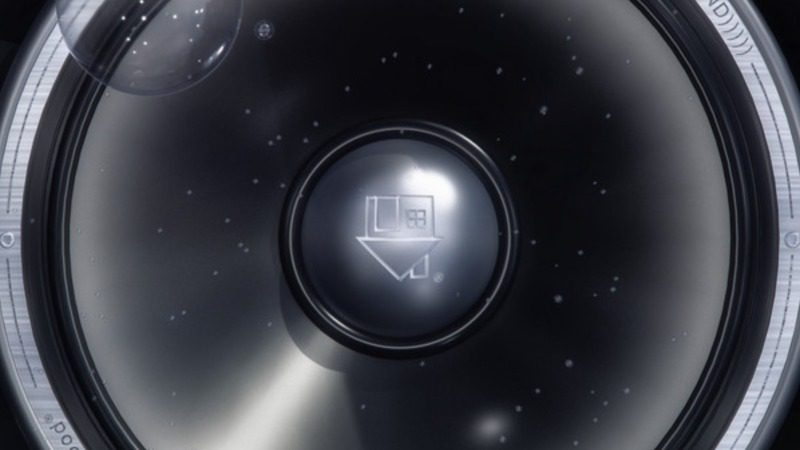Have you heard that The Neighbourhood, the band behind the fourth most-streamed song of all time, released a new album? If not, I don’t blame you. The album is called Ultrasound, bafflingly stylized as (((((ultraSOUND))))) though I couldn’t tell you why. Maybe they’re masochists and reveled in the thought of listeners groaning at the title. Maybe they hoped those ten parentheses would grab the record some attention—but it’s not like anyone saw them in the first place. The once mega-popular band kept the promotion of their fifth studio album—their first in five years—a minimal affair. There’s been little posting on their social media, no interviews or press junkets, and no live performances to remind you of the band’s signature black-and-white, vaguely skatercore aesthetic. To quote the lyrics of “Private,” one of the album’s three singles, they’re “keeping it private, shhh.”
I have a few hypotheses as to why The Neighbourhood didn’t hard-launch their return from hiatus. Perhaps they’re worried Ultrasound seems like a regression; after all, the album brings back the band’s retired upside-down house logo, gesturing towards their earlier albums from Tumblr’s alt-rock heyday. It even includes a track called “Mama Drama,” an obvious attempt to follow up their 2015 hit “Daddy Issues.” Perhaps they’re trying to avoid the tabloids, since frontman Jesse Rutherford was previously in a relationship with Billie Eilish. Perhaps they’re still insecure that they’ll never replicate the runaway success of “Sweater Weather,” a chip on their shoulder that has run through their whole subsequent body of work. Most likely though, the muted announcement is because of the band’s decision to welcome back drummer Brandon Fried, whom the band previously ousted in 2022 after The Marías’ María Zardoya accused him of sexual assault.
Whatever the cause, the effect remains: with little frills or fanfare, The Neighbourhood’s Ultrasound is here (as a matter of principle, I’ll be referring to the title sans-parenthesis). The album is neither a return-to-form, nor a level up, nor an attempt at a redemption arc. It is another effort on behalf of The Neighbourhood to solidify themselves as true artistes, rightful peers of their contemporaries. That is not to say it succeeds. In the 12 years since their debut album, The Neighbourhood have covered extensive ground on their quest to seem like more than just a major-label pop band: they’ve made radio-ready alt-rock, a clunky hip-hop mixtape, a Ziggy Stardust-esque concept album. Though few of these choices actually benefited their music, they certainly weren’t boring. In a way, this band is just as audacious as their UK counterparts; it’s just that The 1975 pulled it off through good songwriting and sheer force of will. On Ultrasound, thankfully, there’s no gimmick or G-Eazy feature, but there’s also no intrigue. For the first time ever, The Neighbourhood sounds completely resigned.
The band’s main strength has always been their hooks. Sure, they’re keen to sell an image that’s “alternative” (in the same way Sombr is an “alternative” Harry Styles, which is to say not at all). But when all is said and done, the band thrives on memorable pop melodies. At least at its start, Ultrasound leans into this old M.O. On opener “Hula Girl,” Rutherford does his best Liam Gallagher impression over a bed of guitars. It’s not breaking new ground for them, but it’s the kind of California-meets-Britpop pastiche that The Neighbourhood can realistically sell you on. Singles “OMG” and “Lovebomb” are more of their typical fare: slick guitar with layers of haze, cozy like an overpriced Urban Outfitters sweater. These songs mostly hold the momentum, though a close listen to “Lovebomb” will reward you with the lyric “When we’re all alone / Holding more than hands.”
“Private,” the final of the album’s three singles, continues Rutherford’s years-long side-hussle as an Abel Tesfaye impersonator. I’ll give him some credit: on older cuts like “Softcore” or “Void,” his voice is smooth, gliding into hooks with cockiness. On “Private,” though, his heart isn’t in it. He sounds raspy and tired. “Private” aims for sexy and edgy, but it lands like an unpleasant opening message from a Hinge match. At the end of the song, a vocal sample of a British woman whispers seductively: “The Neighbourhood,” she says, as though to remind you who you’re listening to in case you forgot.
From there, the single-ready material comes to an end. Characterized by a lethargic pace and a swathe of vaguely confessional lyrics, the bulk of Ultrasound desperately tries to position itself as Artistic Rock Music. Every guitar line is washed out into oblivion; every drum hit is mushy beneath layers of reverb. They’ll bore you just to prove they’re serious. “Lil Ol Me” tries to build tension through its wall of sound, but Rutherford can’t match the song’s angst. He sounds oddly unbothered against the band’s paranoid instrumentals. He does a bit of spirited shouting on “Daisy Chain” and “Stupid Boy” that breaks through the malaise, but it doesn’t feel like a genuine outcry so much as a shoehorned signpost to inform us that we’re in the emotional part of the record now. “Rabbit” spends five minutes dwelling on the same beach-y guitar riff while Rutherford croons about self-pity and self-destruction. The band does have precedent for these tedious, psychedelic, middle-of-the-setlist cuts; after all, there is the 6-minute Wiped Out track “Baby Came Home 2/Valentine.” But even that song had momentum, layering bass into something that crunched and snapped. Ultrasound couldn’t be grayer.
The Neighbourhood have been on a decade-long, increasingly aggravating mission to prove they’re a capital-B Band capable of capital-A Art. They released 2018’s Hard To Imagine The Neighbourhood Ever Changing as a multi-part series of EPs. For 2020’s Chip Chrome and the Monotones, Rutherford painted himself silver and performed under the guise of the album’s titular persona. They’re eager to insist they’re making serious music. But when The Neighbourhood’s music does work, it’s because it’s not serious music. “Sweater Weather” and “Daddy Issues” aren’t hits because they’re deep. They work because they’re shallow. They’re light, catchy, and convey a loose, Californian fantasy that’s easy to fall for. With its dour and heavy-handed approach, Ultrasound finds The Neighbourhood working against themselves. Already marred by their decision to welcome back Fried, the band finds no way to redeem themselves here. If you’re searching for some “2014 Tumblr” nostalgia, go listen to Wiped Out instead.
Andy Steiner is a writer and musician. When he’s not reviewing albums, you can find him collecting ‘80s Rush merchandise. Follow him on Twitter.




